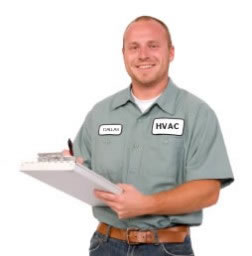Is Your HVAC System Ready for the Cool Months Ahead?
Posted by Ralf Schulz on December 2nd, 2016
 No matter where you live in the United States, it’s likely
that cool months are coming for you. Whether you live in an area where that
means highs in the 60s instead of the 90s, or you’re looking at temperatures
getting well below zero, now is a great time to take a look at your HVAC system
to ensure it’s ready for the cooler months coming.
No matter where you live in the United States, it’s likely
that cool months are coming for you. Whether you live in an area where that
means highs in the 60s instead of the 90s, or you’re looking at temperatures
getting well below zero, now is a great time to take a look at your HVAC system
to ensure it’s ready for the cooler months coming.
Seal any air leaks
Many homes have air leaks, whether they were built two years ago or a hundred years ago. Common locations of air leaks include around the perimeter of doors and windows, electrical outlets, and plumbing fixtures. Doors and windows can be sealed with caulk while exterior plumbing fixtures and electrical outlets are typically sealed with weather stripping. Remember that weather stripping doesn’t last forever, so even if you’ve replaced it within the last few years, you should still check it on a yearly basis.
Check your ductwork for leaks
According to the EPA, if you have leady ductwork, you could be looking at a loss of efficiency of as much as 25%. That’s just one of the reasons why AC-World recommends ductless heating and cooling systems that don’t have ducts at all. While you can try to reduce leaks in your ducts, by their very nature they’re not particularly energy efficient. Let AC-World help you find a more energy efficient option.
Check to see if you need more insulation
No matter how good your heating and cooling system is, if your home is leaking air out the attic or basement, then you could be looking at much higher utility bills than you need to be paying. You can hire a local company to come over and do an energy audit. They’ll let you know if your attic is losing heat and how much it’s costing you. Or you could simply add insulation yourself.
Check your filters
Filters work to prevent particles from entering your home via your HVAC system. However, when they become clogged or full, they can significantly decrease how well your HVAC system runs. Check your unit to see if it has a filter that needs to be cleaned or if the filter must be replaced. Take the manufacturer’s suggested maintenance schedule seriously. Not only can it help improve your HVAC system’s energy efficiency, but it can extend its life as well.
 Loading... Please wait...
Loading... Please wait...


